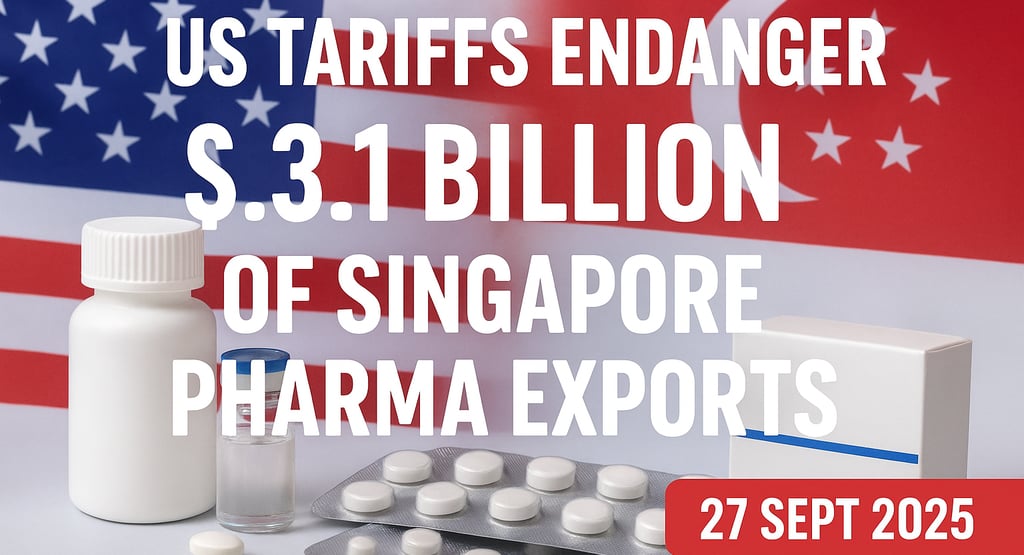US Tariffs Endanger $3.1 Billion of Singapore Pharma Exports – 27 Sept 2025
US tariffs of up to 100% threaten $3.1B of Singapore’s pharmaceutical exports. Trade talks aim to secure exemptions. Latest 27 Sept 2025 update.
Raja Awais Ali
9/27/20252 min read


US Tariffs Threaten $3.1 Billion of Singapore’s Pharmaceutical Exports
The United States has announced a sweeping trade policy imposing tariffs of up to 100 percent on branded pharmaceutical products not manufactured on U.S. soil, putting about $3.1 billion worth of Singapore’s drug exports at risk. According to Singapore’s Deputy Prime Minister and Trade Minister Gan Kim Yong, the threatened exports represent roughly 13 percent of the nation’s total shipments to the U.S. He noted that several pharmaceutical firms are already planning to build production facilities in America, which could qualify them for tariff exemptions.
Although a bilateral free trade agreement has been in place between Singapore and the U.S. since 2004, selective duties have persisted. Earlier this year, Singapore’s effective tariff rate on U.S.-bound exports averaged 6.8 percent in April, rising to 7.8 percent by July after Washington expanded levies on steel, aluminum, and certain pharmaceutical ingredients. Analysts warn that without exemptions, duties on pharmaceutical products could surge beyond 30 percent, posing a serious threat to one of Singapore’s most valuable export sectors.
To mitigate the risk, Singapore’s government has accelerated trade talks with Washington. Key strategies include clarifying exemption criteria for drug makers, diversifying export markets to reduce reliance on the U.S., and providing both financial and regulatory support to companies adapting their supply chains. Gan emphasized that firms with active U.S. manufacturing plans may avoid the harshest impacts, but he acknowledged that contingency measures—such as rerouting exports and reassessing supply chains—remain essential.
Economists caution that the tariffs could directly weigh on Singapore’s economic growth, given the pharmaceutical sector’s central role in the island state’s trade portfolio. If exemptions fail, companies may be forced to alter their business models or shift more investment to U.S.-based facilities. Beyond the immediate economic effects, the move raises broader questions about global trade norms and the consistency of U.S. trade policy.
This development highlights the urgency for Singapore to diversify its export destinations and strengthen its pharmaceutical industry against external shocks. The coming weeks of negotiations between Washington and Singapore will determine whether the sector can avoid a multi-billion-dollar setback or face a significant restructuring of its international operations.
Stay informed with the latest national and international news.
© 2025. All rights reserved.